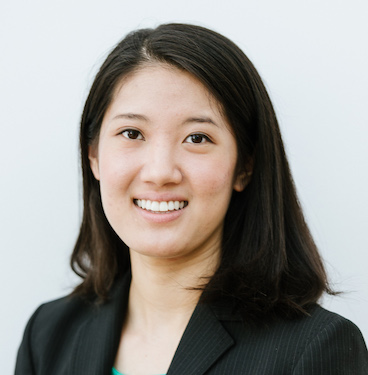If you have been diagnosed with PCOS, you’ve probably heard that “PCOS is a complex condition” a million times now — and for good reasons. PCOS not only affects your reproductive health, but your metabolic and psychological health is affected too. Moreover, no two women are alike — which means very few women will display the same set of symptoms. In fact, given how vast the symptoms are, you don’t even necessarily have to have all of them to be diagnosed.
This can make it confusing — and probably make you wonder how your treatment will look. Given the “complexity” of the condition, PCOS is treated symptomatically. And since PCOS does not have a cure per se, managing your symptoms is mainly a combination of lifestyle changes and medications.
Also read: Can PCOS Be Cured?
Treatment for PCOS
Now, we understand that having a chronic health condition like PCOS can get overwhelming. But remember, PCOS symptoms can be managed to reduce their impact on your lifeWorking closely with your doctor is the first step in your treatment journey. Your doctor may suggest treatment options that will depend on the severity of your symptoms, if you have any other underlying health conditions or if you’re looking to get pregnant.
Managing PCOS with lifestyle
In most cases, making lifestyle changes should be your first line of treatment. A healthy lifestyle means having a nutritious and a well-balanced diet combined with regular physical activity.
Weight management
If you are overweight, losing even 5% to 10% of your body weight can have a great impact in reducing your PCOS symptoms. Losing excess weight helps regularize your periods, improve fertility, lowers your risk of developing diabetes and reduces other symptoms associated with PCOS such as acne, and excessive hair growth.
Focusing on diet and physical activity
Regardless of your weight, your nutrition and activity levels are important in managing PCOS. Your diet can consist of healthy carbohydrates, proteins and fats from unprocessed food sources. Cut down on processed food items such as packaged foods, fried food and junk food. Focus on having fresh fruits, vegetables, whole grains such as brown rice, bajra, jowar, ragi; proteins such as chicken and eggs, and healthy fats such as nuts, salmon and olive oil.
When it comes to exercise, start with reducing inactivity and increasing movement through the day. This could mean going for an evening walk, doing household chores or playing a sport. It is recommended to get at least 30 minutes of physical activity daily to start with — which you can break down through the day. Along with doing cardio (walking, running, cycling), also include strength training exercises for a holistic approach.
2. Managing PCOS with medication
For some women, making lifestyle changes is all they need to reduce their symptoms. But for others, medications may also be required to manage other health problems such as fertility issues, diabetes or high cholesterol. Some commonly used therapies include:
1. Combined oral contraceptive pill
There is a lot of stigma and misinformation around taking oral contraceptive pills. You must’ve heard comments like “You are too young to take these pills” or “it can cause infertility in the long-term”. But essentially, oral contraceptive pills (OCP’s) are just a combination of oestrogen and progestin. Oestrogen and progesterone are two naturally-occurring female hormones that control your cycle and ovulation (egg release). In women with PCOS, there is an imbalance of these hormones due to elevated levels of male hormones (androgens). These pills help make your cycle more regular by reducing the level of androgens produced.
2. Metformin
Most women with PCOS are insulin resistant, which leads to elevated levels of sugar in the blood. Excess sugar in turn affects androgen production. Metformin is primarily used to treat insulin resistance and diabetes by making your body more sensitive to insulin and maintaining a stable level of sugar in your blood. In women with PCOS, this can help with weight loss, reduce the production of androgen and help regularise periods.
3. Anti-androgen drugs
Since androgen levels are elevated in women with PCOS, these medications help prevent the production or reduce the effects of these hormones. This can in turn reduce symptoms of excess hair growth (hirsutism) and acne. However, anti-androgen drugs can cause birth defects and are often prescribed with an oral contraception to prevent pregnancy.
4. Cosmetic treatments
Elevated androgen levels can cause excess hair growth, acne and scalp hair loss, in women with PCOS. This can be managed with cosmetic treatments. Shaving, threading, waxing, and laser, are some common hair removal methods. For acne, using over-the-counter creams or ointments that are antibacterial and help unclog pores are useful. Your doctor can advise what kind of topical medication is the best for you depending on the severity of your acne. For scalp hair loss, the first line of treatment is applying minoxidil (available as liquid or foam) to the scalp. Additional treatments include laser therapy and hair transplantation.
5. Fertility treatment
“You cannot get pregnant if you have PCOS” is a big misconception. In most cases, infertility problems in women are due to the absence of ovulation (egg release) and making lifestyle changes can help bring back normal ovulation. However, there are certain ovulation induction medications that can help you get pregnant. Letrozole is a widely used treatment for infertility in women with PCOS and has been shown to be more effective than other ovulation induction agents such as clomiphene citrate. These medications are associated with a higher rate of multiple gestations (ex: twins, triplets) and so their use should be monitored by a physician. There are other medications such as metformin and gonadotropins that can also help induce ovulation.
When it comes to PCOS, making lifestyle modifications is still the first line of treatment. Speak with your doctor before starting any new medications. And lastly, taking care of your mental health is important too — so seek help when required.



















